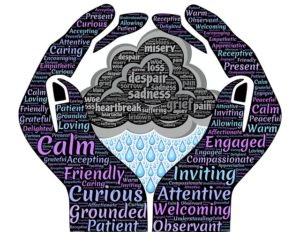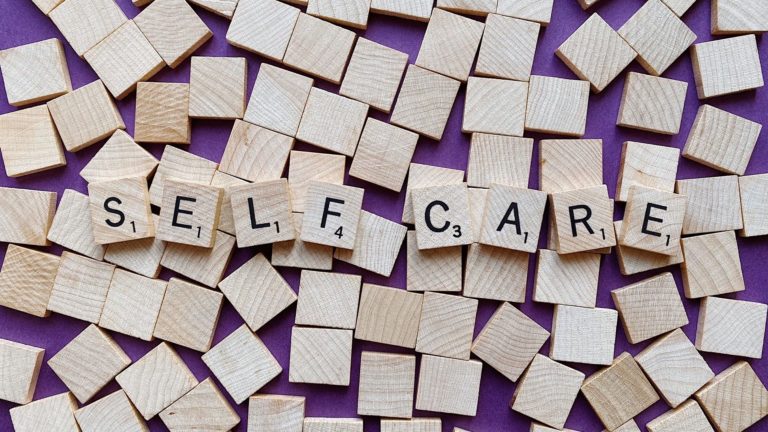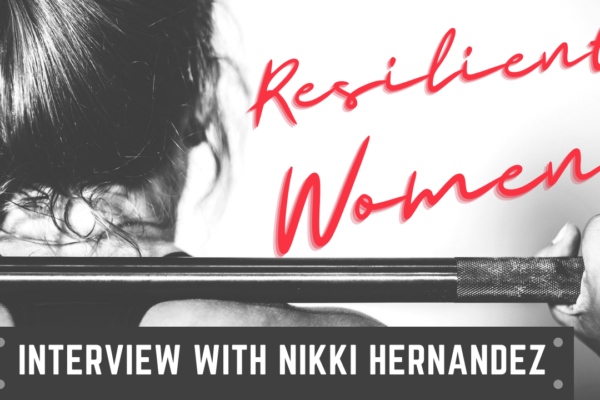
Table of Contents
When considering your self-care needs, it is important to assess the following Areas of Self-Care:
PHYSICAL Areas of Self-Care
Diet:
- Your physical health is intrinsically tied to your mental health and self-care. Diet can mean a lot of things to a lot of people, but I want you to focus on making sure that you are getting the right balance of foods to feed your most essential bodily functions (your liver, kidneys, hearts, brain and lungs).
- Foods that will help your body maintain healthy blood sugar and cholesterol levels. Just as important, is making sure that you are hydrated. I strongly recommend that you establish a healthy routine to make sure that you are checking the right boxes. If you find that you are unsure of where to start when it comes to eating for your health, than check out my other post dedicated to this topic.
Exercise:
- Nothing extreme here, you just want to be sure that you are creating space for exercise as you budget your time, that you are engaging in exercise that is sustainable in your routine and that you are consistent in the way you are engaging in this type of self-care. This could be anything from yoga, to walking, to more intense activities like jump rope.
Medical care:
- Unless you have any special needs, just be mindful to get you annual physical with blood work. If you are taking any medication, especially for mental health (such as Depakote or Lithium), it is likely that you will need blood work done more often and check in with your treating physician or psychiatrist to be sure you are on the same page.
- Also, make sure you are getting you regular dental cleanings as dental health is also linked to physical health issues when not attended to, and it goes without saying, your self-esteem also.
Time off:
- Be sure that you are taking care to think ahead and plan for how to are going to use your regular time off, so that when you return to work, that you are not left feeling like you wasted your time, or failed to accomplish anything meaningful around areas of self-care, which will leave you resenting having to go back. Likewise, be sure to take time off to rest when needed and plan for meaningful vacations (stay-cations are great too!).
A little extra indulgence:
- The goal here is to give yourself permission to reward yourself for your consistency, from time to time, such as a message, a day at the spa, binge-watching your favorite show, etc..
Play:
- When it is time to clock out, be sure to change hats. Do not ruminate about what you did not get to. You need to stay engaged with you inner child and remember that play is a HUGE part of our human experience, and plan to engage in some form of play, whatever fits the bill. Just do you.
Sexual:
- Be sure that you are checking in with your body and that you are not neglecting some of your most basic needs. If you are in a relationship, evaluate if there is anything that is lacking in your romance, and ways you can be more attentive to the needs of the relationship.
Comfort:
- Creature comforts, clothes, the little things that make you feel cozy, at home, confident. Be sure that you are being mindful to anything that changes, or is being neglected.
Get away:
- This does not have to be a vacation, this can be a day-cation, a long walk, a new way home, window shopping at a new mall. A lot of research shows that doing things just a little different and going to new places creates new pathways in the brain that stimulate feelings of happiness.
PSYCHOLOGICAL Areas of Self-Care
Reflect:
- You do not have to be a Zen Master of meditation to be effective in this area of self-care.
- Just be intentional about getting a quiet space for as little as a few minutes a day to reflect. I find it very effective near bedtime, when it is most quiet in my house, to project what I want the next to look like, the things that I want to prioritize, and then reflect back on how the day (yesterday) went and if things did not work out as expected, for better or worse, to ask myself why.
Get a “person”:
- The most obvious thing to me here is a therapist, but that is likely because I am one. But really, you just need someone who is an unbiased sounding board, with your best intentions at heart, who has an unconditional positive regard for you. In addition, it does not hurt to have friends who will offer their advice, just make sure you have a good balance so you do not end up feeling judged all the time.
Journal:
- This is nothing new, it is pretty well accepted that writing down your thoughts and feelings is a cathartic activity.
- So why don’t we all do it? Like most things that are good for us, it is not always convenient. Here, I want to you to find quick and easy ways to track your most distressing thoughts and your goals.
- The most common method right now is something called bullet journaling.
- I often have my clients with anxiety keep a worry journal and in generally encourage the use of mood and thought tracking, be it on a formal template, or just on their phone notes or calendar or app.
Read:
- For fun, for education, keep it varied. Try an audio-book, or a podcast, or summaries as with the Blinkist app.
Get outside your bubble:
- Consider your routine, what encompasses your life on average and then find ways to expand beyond your norm, just a little bit. A new group, a new interest, a new challenge.
Decompress:
- Take time to do that ting that you have been putting off, give yourself permission to take that walk, get that massage, that pedicure, to read that book or see that movie.
- This is about self-compassion, friends, and is usually the most obvious among areas of self-care.
Show more than one dimension of yourself:
- We tend to behave in specific patterns with familiar people. Consider those aspects of yourself that you have not displayed for given company, and find ways to share more of a 360 view of your character in all its beauty.
Take note of your inner-experience:
- Reflect on your day. Did it go as you had hoped, and if not, why? What did you learn about yourself today that you can either praise or improve?
Challenge your intellect:
- It is so important to stay stimulated. If you feel like you are growing tired of your routine, it is probably because you are not being challenged. Consider what you can take on of interest that is somewhere between your comfort zone and your delusional (unrealistic) zone.
Be receptive:
- Mind and ears open, mouth shut. Stop, take a step back, observe, and proceed mindfully.
Be Curious:
- Consider the possibilities, be open-minded to how you might feel embarking on new territory; who knows, you could be pleasantly surprised. Try a new walking trail, a new coffee shop.
Practice saying no:
- If you do not protect your time, you will give it away. Yes, it is all good and well to be generous, but please leave some room in your time budget to spend on the unwritten and un-committed opportunities for expressing your creative areas of self-care.
EMOTIONAL Areas of Self-Care
Spend time with others:
- Remember that old saying, “no one is an island”? Well, that is because as much as we would like to think that we do not need anyone else, be it because we have been hurt or disappointed, we are social beings.
- If we are being really honest, we are not only designed to be social, we thrive with social support.
Stay in touch:
- It does not take a lot to maintain relationships, just the consideration to check in on occasion. It may help to set a routine where you make short calls, or send a text. This could be during your weekly walk or grocery shopping.
- If you maintain short spurts of contact, you will not feel as anxious as when waiting a long time and feeling like you have to share everything.
Get affirmative:
- This is more than positive psychology or affirmations. This is about checking your self-talk and making sure that you are at the very least, being fair in your statements, and when possible, ask yourself questions.
- Be sure to show self-compassion. There is a ton of research linking self-compassion to positive mental health.
Practice Self-Love:
- This is more than tackling self-talk. This requires physical action. Be sure that you are paying attention to what your body is telling you. If your eyes are tired, take a 15 minute break and rest your eyes. It does not have to be complicated.
Replay effective coping:
- What has worked in the past? Chances are if it was effective before, it will be useful again and that resuming an old healthy routine with a little tweak is an easier place to start than jumping into something new.
- This is because the process of incorporating a new habit, and learning how to make it work in your schedule in a sustainable way, is emotionally and mentally draining and hard when you are battling depression and or anxiety.
- Try resuming old habits around your favorite areas of self-care.
Identify and seek out safety and comfort:
- What is your safe place? who are your safe people? Create a high-definition picture in your mind of what these things look and feel like, so that when you are feeling tapped out, it is easier to act on them.
- How will you get there? how will you solicit support and what kind of support do you need (practical, spiritual, direct unfiltered feedback or just a shoulder to cry on)?
Make room to cry:
- It used to be a societal norm that “men don’t cry”. However, not only has this expectation remained static, now both sexes are often held to the same unrealistic standard. Rather, crying is a healthy, cathartic behavior. Allowing space to vent is a crucial part of your self-care regimen; be that over wine with your best friend, or in your therapist’s office.
Indulge your humor:
- Remember that old adage “laughter is good medicine”? Well, that could not be more true. Be intentional in finding ways to maintain your sense of humor.
- It will help you sustain a healthy perspective and not take yourself too seriously; this has been a staple in maintaining my own mental health.
Find meaningful outlets bigger than yourself:
- You do not have to dedicate your life to being a Gandhi or Mother Theresa, but it is important that you find ways to serve others. This will help you maintain perspective and get out of your own head and your own problems, which will allow time for your psyche to breathe.
Play with youth:
- Spending time with youth will remind you of the wonder of the world (remember before we started creating bias?), the importance of being present-minded (as adults we seem to become hyper-focused on the future or ruminating on the past), and to stay curious. Mindfulness is an ever-elusive art of self-care.
SPIRITUAL Areas of Self-Care
Reflect:
- Just be intentional about getting a quiet space for as little as a few minutes a day to reflect on what is important to you, what you want to prioritize with your time, and to ascertain if your actions are in line with your values.
Nature bathe:
- “Nature bathing” is a new term that basically combines mindfulness with nature walking. Get out of the house, even if in your own backyard, and observe the trees, the colors, the sounds and do some nice, deep breathing (in through the nose, out through the mouth).
Get connected:
- Be sure that you maintain a point of contact for your spiritual practice. This could be in the form of a devotion with a journal, spiritual text, rosary beads, talking with a spiritual counselor, meditating etc…
- The take-home point here is to be intentional about making time for acknowledging the spiritual aspect of your being, which can be challenging in today’s busy world.
Keep an open mind:
- As you go about your daily business, proceed mindfully and try to refrain from rigid judgments about the things around you.
- Seek understanding versus blame or assertions.
Protect your optimism:
- We are surrounded with pessimism. In today’s world, we really have to fight to maintain our sense of optimism. This can be done by choosing to stimulate ourselves with positive content. Personally, this is why I love podcasts. It is very easy to choose to listen to a podcast of positive content on the way to work to set the tone for my mental state versus listening to the radio or local news, which is not the most helpful.
Focus on the non-tangible:
- In a world where we have our cell phones glued to our person 24/7, we have to make a concerted effort to put our phones out of our reach at the dinner table (or is that just me?). Unplugging for a bit helps to give our undivided attention to the wonder around us, which lends to a greater appreciation for our existence and an attitude of gratitude.
Be a spectator:
- Being an active participant in life is very important, but do not forget to step back at times and focus on taking in the scene and read the room. Try and pick up on things that you would otherwise miss when engaged in a task.
Seek understanding:
- When trying to gain a better understanding of something, or in resolving a dispute, remember to be quick to listen and slow to speak. This will put you in a better position to make educated decisions in how you choose to proceed and will improve all areas of self-care.
Identify and prioritize the meaningful:
- In your time of reflection, try to identify the things that you hold as most valuable in your life, and keep a list to check it against when later evaluating how you have been spending your time, and also when projecting how to plan your days ahead.
Meditate:
- Be proactive and intentional in creating a routine wherein you get quiet-time to meditate and empty your mind, rest your eyes and recharge.
- As a therapist, my full attention is demanded hour after hour in problem solving, seeking understanding and assessing how and when to provide meaningful interventions.
- In order to keep functioning at my best, and serve others the best to my abilities, I have to create small pockets of quiet-time in the day without any distractions, and when I neglect this, boy do I feel the difference!
Express:
- Be sure that you have a creative outlet. This could be a sport, a hobby, an interest. So long as you are investing some of your time into expressing what is meaningful to you.
Seek amazement:
- Find ways to be reminded of the vast and deep complexities of our universe and ourselves. Take time to stargaze, watch a new documentary, take a road trip or just a day-trip to a new place. This is one of my personal favorite areas of self-care.
Participate in meaningful activities:
- Here, you just want to be sure that you are plugged in to something routine that is in line with your values. This could be a church group, volunteer service, a sport, club, league etc…
Seek inspiration:
- What tickles your’ fancy? For me it is usually healthy lifestyle hacks, practical wisdom and financial literacy. So I will subscribe to podcasts and blogs and You Tube channels that speak on these topics.
- I almost always gain a new nugget of wisdom, or at the very least a better perspective, which contributes to better mental health overall.
WORKPLACE Areas of Self-Care
Protect your break time:
- I know that this can be harder than it sounds, but try to be mindful of scheduling a couple breaks in your day to recharge. You will be better for it, even if it is a 15-minute walk or a power nap in your car will do the trick.
Be social:
- I am not suggesting that you procrastinate on your duties to chat about the recent game or TV show, but try to make time to greet your peers, check in briefly with others and when you have the downtime, dive into conversation a little more, if and when appropriate in your work environment.
- Take a walk with your coworker, grab a coffee, get some fresh air.
Create quiet space:
- Options will vary here based on your environment, but I found that taking 15 minutes in the day to just sit in my car and rest my eyes makes a world of difference in how I perform at work and after.
- A small investment here will have an impact on your quality of life that extends beyond the workplace.
Seek engaging tasks:
- If your job allows you some autonomy in your workflow, try seeking out new tasks that are both interesting and a new reasonable challenge.
- This will improve your job satisfaction and help to prevent burnout.
Maintain boundaries:
- Maintain boundaries with others, and with yourself. This will help to protect you from creating additional work-related stress and resentments down the road.
- Do not take your work home (when possible), take your scheduled breaks, don’t offer opinions that are not solicited, do not over-fraternize and do not completely isolate either.
Don’t become lop-sided:
- Remember what good old Jack Nicholson said, “all work and no play makes Jack a boring guy!”.
- If life is all about work, then it will start to feel very grey and empty after awhile. Yes, feeling productive is a universal positive factor in our mental health, but we must take care to show moderation in all our efforts.
- Balance does not always mean 50/50. Yes, there will be times when workloads and deadlines outweigh our downtime, and we have to attend to the important and urgent.
- But this is not the case the majority of the time unless we have created such a dynamic for ourselves.
Maintain a refreshing work-space:
- “Cluttered space, cluttered mind?” “Cleanliness is next to Godliness?” I am not so sure about all of that, but it has been my experience that intentional use of space that is functional for your workflow is crucial.
- For example, I have an aversion to paper, so you will not find any sticky notes around my desk. However, you will find a lot of digital notes on my Google Keep app. I like open, clear desk space.
- One of my best friends and colleagues is just the opposite, and her desk looks like a sticky note grenade went off at her desk, yet she is just as productive as me.
- But then, there is a method to her madness. What looks like chaos to me is a finely orchestrated choir of notes for her.
Get feedback:
- Having sounding boards is an important part of our personal growth. If you feel stuck on something, consult with your peers and/or your supervisor. Thinking out loud stimulates the thought process.
Advocate for your needs:
- Do not wait until you are at your wit’s end before you say something. As soon as you identify there is a problem that threatens your productivity or mental state in the workplace, seek out the appropriate channels to get ahead of it.
- You would be surprised how much support there is once your start digging (EAP anyone?).
Get peer support:
- Consult, buddy up, whatever works in your environment. It is important to remember that we are not an island and we all have the same needs and similar challenges. Find out how others address theirs.
BALANCE Areas of Self-Care
In the workplace:
- Try and keep your duties of the days balanced, so that you are not overloaded at any one point for too long.
Between work and home:
- This is a little easier if you have defined hours and a brick and mortar location. If you work from home, boundaries are especially important here.
- In either case, be sure that you are taking care to attend to your top priorities in the workplace and in the home, that will make it easier to let some things take a backseat if something has to give and will have a lesser impact on your quality of life.
The Mental Health Toolbox: Resources and Support for Therapists Seeking Growth & Impact.
Mission Statement: To equip therapists with the tools, knowledge, and strategies they need to enhance their practice, boost their income, and ultimately, improve the lives of their clients. We achieve this through accessible, high-quality content, practical resources, and a supportive community.
ASK: If you have a question you’d like me to answer here on the blog (even if you think it’s a silly one!), please use the form on the CONTACT ME page, or the comment section below. I would be happy to take a poke at it and provide a long form answer when appropriate.
SHARE: Also, be sure to share it with a friend, as there is still a lot of work to be done in raising mental health awareness.
SUBSCRIBE to get your FREE MOOD TRACKING TOOL and quick Mental Health Hacks in addition to this newsletter. Sign-up with the form below.
Recommended Reading
Heads up: This article/page does contain affiliate links to products sold on Amazon, which I recommend in the context of this discussion, because they have proved to be helpful to me and/or my clients. As an Amazon Associate I earn from qualifying purchases by way of commission at no additional cost to you.

NEED CRISIS HELP? If you need immediate crisis help with your depression, you can call the National Suicide Prevention Lifeline at 1-800-273-8255 or text “START” to 741-741
OUTSIDE THE UNITED STATES: See International Suicide Hotlines
WHERE TO FIND MENTAL HEALTH HELP:
-NAMI Referral Helpline: 1-800-950-6264
-California’s Statewide Mental Health Helpline: 1-855-845-7415
admin
Latest posts by admin (see all)
- How to Build a Referral Engine Without the “Hustle”: - January 12, 2026
- ADHD Tips for Therapists | with Dr. Jennifer Dall - May 28, 2025
- Why Therapy Fails Men (And How to Fix It) – Insights with Marc Azoulay - May 11, 2025










